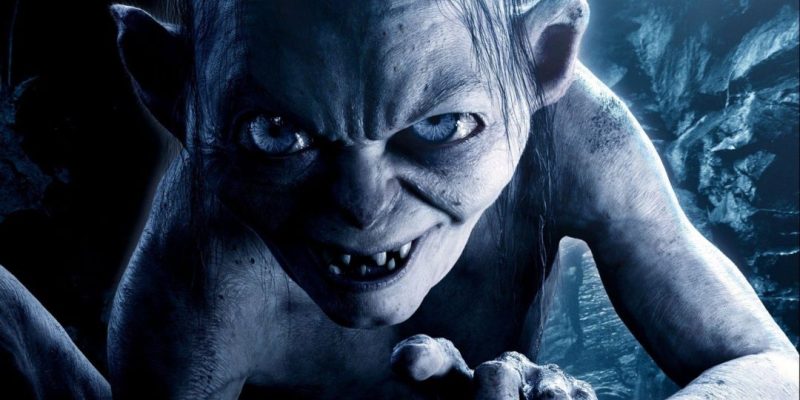“And even Bilbo’s story suggests the kinship. There was a great deal in the background of their minds and memories that was very similar. They understood one another remarkably well, very much better than a hobbit would understand a Dwarf, or an Orc, or even an Elf.” – Gandalf
There is such breadth and depth to J. R. R. Tolkien’s The Lord of the Rings that it’s no wonder the books became such fertile soil for adaptations of every kind, including nearly two decades’ worth of video games released following Peter Jackson’s film trilogy. These games create the impression that The Lord of the Rings is a war story, or maybe a pulpy action-packed tale in the tradition of Robert E. Howard’s sword and sorcery stories. For all the care taken to translate the story into a real-time strategy, massive multiplayer, or Final Fantasy-style role-playing game, the developers haven’t been completely successful in capturing the tone of the books.
For every scene where an outmatched hero stabs some unspeakable form of evil incarnate in the face, the books contain two or three more of lyrical sadness at the passing of an age of wonder. It’s telling that the games are readier to put players in the sturdy boots of a Dunedain Ranger or an ageless wizard than those of the hobbits at the center of so much of the story. But that seems like it’s about to change. Following the baldly violent action title Middle-earth: Shadow of War, the next The Lord of the Rings game will be focused on one character central to the story and yet too often presented as an afterthought by the games: Gollum.

Gollum sits at the center of so many of the moral questions Tolkien asks in The Lord of the Rings. In crafting the mythology of Middle-earth, he echoed some of the foundational details of Christian theology. There’s a benevolent god, a rebellious Satan figure, and mortals caught between them. It’s the meekest of those mortals who prove the most consequential in the end, and not even by their own volition. As determined as he is to destroy Sauron’s One Ring, Frodo Baggins’ resolve collapses at the end and he gives in fully to the darkness. In this, he has a perfect opposite in Gollum, the miserable creature named Sméagol, who was once not so very different from a hobbit.
Gollum’s journey is full of enough adventure and action to support a narrative-heavy game. In a story filled with caveats about its full veracity, Gandalf tells Frodo that Sméagol murdered his kin to take the One Ring and used its power to become a spiteful sneak until he was shunned by his people and driven into the wilderness.
His wanderings in the dark, where he tangles with goblins and matches wits with Bilbo, are well known to fans of the films. His single-minded pursuit of the ring leads to his capture in the evil tower of Minas Morgul and flight through the most terrifying parts of Mordor – the very journey that provides him the foreknowledge to betray Frodo and Sam to the spider-demon Shelob while posing as a guide for their quest. Just as ripe for inclusion in a game are his run-ins with Aragorn and the elves, who at various points capture and interrogate him. He proves his cunning by escaping from them even without the magic of the ring.
I’m not really interested in playing something like a cutthroat stealth game, controlling Gollum as he hides in cubbyholes and tries to chip down the health of an elf, goblin king, Shelob, or whatever other invention the developers of action games might come up with. Gollum is crafty and certainly not above barehanded murder, but that’s not really the point of his story. I’m much more interested in seeing the perspective of a character struggling to move forward and fighting his own self-loathing.
Gollum is the most tragic figure in the entire series. He’s the victim of both good and evil forces that are utterly beyond his control or understanding. He dances to their steps whether he wills it or not. Gandalf posits that the ring left Gollum’s hand because its master saw he was of no further use. But he further speculates that some other force ensured that the hand that next grasped it belonged to the good-hearted and uncomplicated Bilbo, who passed it, as any who knew him might guess he would, to his nephew Frodo. The reader at first assumes that Gollum’s part in the grand tale is over and views his obsessive refusal to bow out of that tale as simply pathetic.
We’re meant to be frustrated that Frodo won’t just put the wretch out of his misery, right up until the moment when Gollum’s part in the story truly reveals itself. Unwittingly and unintentionally, Gollum becomes the instrument of the ring’s demise even as Frodo fails in his quest to do the same. Bound inextricably to the cursed object, he is destroyed along with it. Was it fated? Is he a hero? Is Frodo?
In an environment where developers are making Shelob into a sexy lady, I’m skeptical that a video game can do this kind of moral study justice. It is encouraging that the Gollum game is coming from Hamburg-based Daedalic Entertainment, a studio that over the past 10 years has made a name for itself with lavishly animated point-and-click adventure games like The Whispered World and Deponia. That narrative-focused genre might be the best way to do justice to Gollum’s story, focusing on emotion over challenge. If Daedalic really gets to the heart of the character’s tragedy and pathos, the game might be the truest Tolkien adaptation yet.
